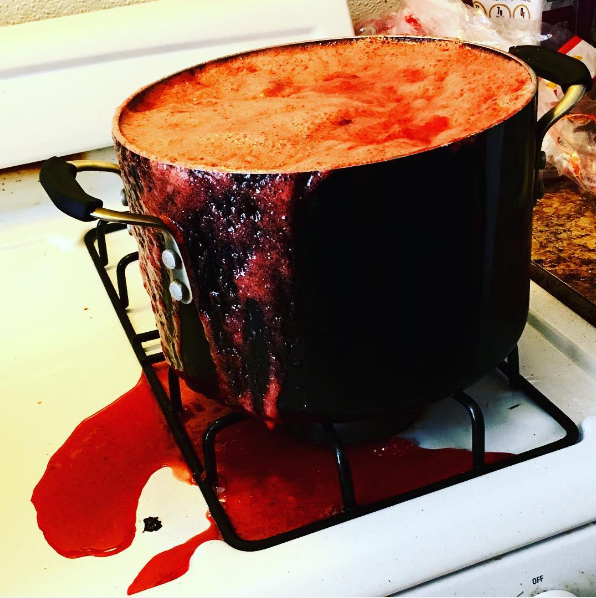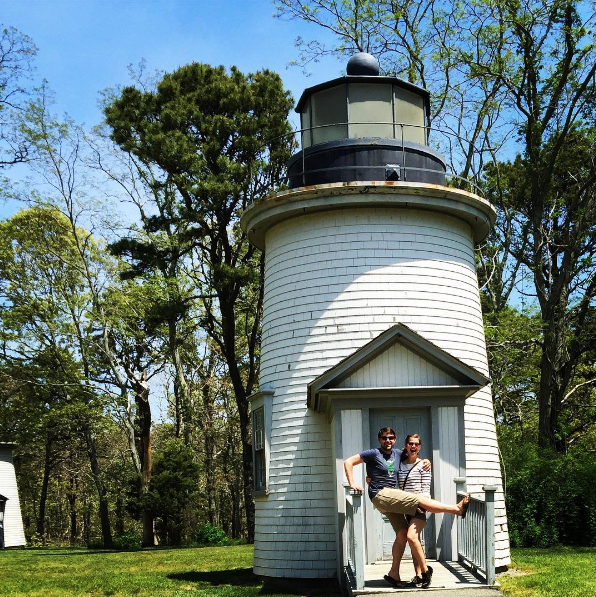
Today’s GBBO-inspired activity: homemade pumpernickel bagels.

Today’s GBBO-inspired activity: homemade pumpernickel bagels.
Flour explodes. A hilarious QA joke. More than I ever knew there was to know about the Billington Sea.

A one-kilometer-square freshwater pond in Plymouth, MA is called the Billington Sea because a 14-year-old fresh off the Mayflower climbed a tree and thought he could somehow see across the entire continent. The same kid fired a musket inside the Mayflower; his father was the first person executed for murder in Plymouth.
Flour explodes. A sufficient concentration of dispersed flour particles in the air can ignite even more explosively than coal dust. Thank you, season one of the Great British Baking Show! (Curious about how this works? Watch this adorable Mr. Wizard clip explaining flour mill explosions using lycopodium powder and an empty paint can or read Alexis Madrigal’s The Explosive Truth About Modern Flour Mills.
It’s possible to recover deleted notes from Simplenote. HOW DID I NOT KNOW THIS BEFORE? My biggest complaint with the software so far is that it’s far too easy to accidentally click the trash icon, and there’s no “are you sure?” warning before your todo list or draft blog post or extensive documentation of critical work functions disappears. “Trash” tag to the rescue.
My new favorite joke (thanks, Metafilter!). A QA engineer walks into a bar. Orders a beer. Orders 9999999999999 beers. Orders 0 beers. Orders -99999999999999 beers. Orders a ❤. Orders a lizard.
Convicted felons who are newly released from prison cannot have contact with other convicted felons in or out of prison, including family members. If you haven’t already read The Washington Post’s “One Year Out,” which profiles nonviolent drug offenders whose sentences Obama commuted, one year after their release from prison, you should go do that now.
Juno, pasta, waterfalls, and the color “Fuzzy Wuzzy.”
How the amazing 780˚ montage in Hunt for the Wilderpeople was shot: “We hid all the actors beneath the camera and in the bushes. Each time we passed the camera by an actor, either an actor would pop up into frame or would run around the camera to take their place for another pass.”
Wikipedia has a list of the hex, HSV, and RGB values and official names for each Crayola crayon color (h/t Diana Kimball). My favorite color name is probably “Fuzzy Wuzzy,” but the scented (!) “Earthworm” is a close second.
Three pounds of pasta will feed 6 ultra runners, a mountain biker, and a hiker with enough left over to pack into a ziploc bag and use to make endless jokes about “the new hot endurance fuel” for the rest of the weekend.
Kaaterskill Falls (pronounced “Cat-erskill,” as in, the Catskills) is the tallest waterfall in New York, and worth the short hike to the swimming hole in the middle.
The excellent reason NASA named its Jupiter probe Juno (Juno was the Roman god Jupiter’s wife, and could use her goddess skills to blow away the cloud Jupiter tried to use to hide his extramarital dalliances—after whom planet-Jupiter’s moons are named). Also, Juno the probe is apparently carrying three Lego figurines.

The next time I decide to make 18 pints of strawberry jam in a third floor apartment sans AC on a 90 degree day, I…won’t. (Pictured: a very small portion of this afternoon’s sweatshop.)
Bicycle face, female depravity, floating point math, and the paamayim nekudotayim.

+= and -=, but there are many, many more (JavaScript, PHP, Ruby).-> in PHP is called the “object operator” and is used to access the property of an instance of an object or to call a method of an instance of an object.=> doesn’t have an official name, but serves as the separator for associative arrays and is used to assign a value to a key.:: is called the “scope resolution operator” but also the “paamayim nekudotayim,” which means “double colon” in Hebrew. It’s used to access static or constant properties or methods of a class.